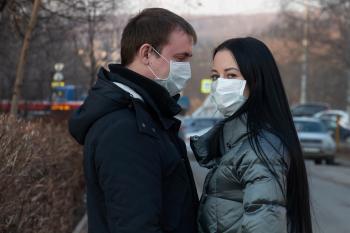 Dating is an integral part of socialization for single adults of all ages. The sudden escalation and impact of coronavirus around the world have created a challenge for those who are just starting in a relationship or those who perhaps have finally made the decision to start dating again.
Dating is an integral part of socialization for single adults of all ages. The sudden escalation and impact of coronavirus around the world have created a challenge for those who are just starting in a relationship or those who perhaps have finally made the decision to start dating again.
There are some very important issues to consider with the very real presence of the coronavirus. Experts in public health and epidemiology recommend social distancing is a key factor in not only preventing contact with the virus but also in limiting the spread of the virus throughout the population.
Social distancing is particularly crucial for those in high-risk groups or individuals living with or working with people in high-risk groups. The high-risk groups identified currently include those over 65 years of age, anyone living in a nursing home, people with chronic health issues, those immunocompromised from cancer treatments, organ transplants or other diseases, and those with pre-existing health issues related to lung disease, heart conditions, diabetes, or chronic types of illnesses.
Family members of these individuals or those who provide healthcare or daily care services for these groups need to be especially careful. The general public also has to be very aware of how their interactions with each other increase the risk of the high-risk groups being exposed to one or more people carrying the virus.
COVID-19 spreads through person to person contact with those infected with the virus, either through droplets from coughs and sneezes or from touching surfaces with the virus and then touching the eyes, mouth, or nose. It is also possible to inhale the droplets, which is why the social distancing of at least 3 feet, and ideally 6 feet, is recommended.
Common Symptoms and Signs of Coronavirus
The World Health Organization or WHO has developed a list of the most common signs of COVID-19. These include:
- Fever
- Dry cough
- Tiredness and fatigue
Some people may also experience:
- Muscle aches
- Headaches
- Sore throat
- Runny nose
- Nasal congestion
- Difficulty breathing – this is an emergency medical issue
However, there are also people with the disease that are asymptomatic, or they show none of the common signs of the disease. These are typically people under the age of 20, and they are very healthy and do not have any current health issues, which means they are not likely to get tested. Even more problematic, they will pass basic screening procedures, which may give them, and the people they work and live around, a false sense of safety. While some of these individuals may go on to show mild symptoms in 2 to 14 days, some may never show any health issues, according to Dr. William Schaffner of the Vanderbilt University School of Medicine.
Dating Dos and Don’ts
Ideally, and while it is difficult for people that seem healthy, dating using traditional options should be avoided for the next few weeks, or until social distancing is no longer required. Instead, couples or those planning a first date should consider some virtual dating ideas to build their sense of connection without putting themselves or those they love at risk.
A few ideas to consider include:
- Skype or FaceTime or social media communication – video chatting is not anything new. Still, it is an effective way to touch base and communicate with your date. Set a time and plan a conversation, or perhaps just spend some time getting to know each other and discuss things to do when you can get together.
- Take a virtual tour date – many museums, art galleries, and cultural landmarks have set up virtual tours you can take for free. This is a perfect way to enjoy The Louvre in France, the Smithsonian Museum, or even virtually stroll through a Royal Residence without having to leave your house.
- Read and discuss a book together – reading a book and discussing your ideas chapter by chapter is a very different way to get to know someone. Remember, you can choose a book you both like, and it doesn’t have to be one of the classics.
It is crucial to make informed decisions on any type of in-person meeting during this time. If your date doesn’t respect your need to be safe and provide safety for your family and loved ones, consider what this ultimately says about his or her priorities.
Sherry maintains a private practice in Westlake Village and is a sought after recovery coach for in person, phone, or video sessions . For more information visit www.sherrygaba.com or sign up today for Sherry’s online group coaching program www.wakeuprecovery.com for

